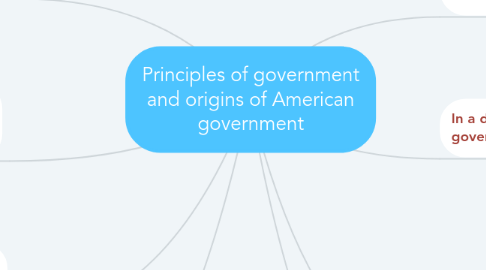Principles of government and origins of American government
by Jason Collar

1. In a dictatorship, to whom is the government responsible?
1.1. Those who rule cannot be held responsible by the will of the people. The ultimate responsibility for the exercise of legislative, judicial, and executive power are held by a single person or a small group (p.5).
2. Explain one way John Locke's philosophy influenced the founding fathers.
2.1. In John Locke's Second Treatise of Government, he discussed the responsibilities of a government and claimed that the people have the right to overthrow of an unjust government. Locke's ideas greatly influenced Thomas Jefferson and other supporters of the American Revolution (p.11)
3. Who wrote the Declaration of Independence and what rights are outlined in the document
3.1. Thomas Jefferson is mostly credited with writing the Declaration of Independence and it identifies the unalienable rights of Life, Liberty, and the pursuit of Happiness.
4. What momentous decision was made at the Philadelphia Convention?
4.1. The Framers met at the Philadelphia Convention to recommend revisions to the weak Articles of Confederation, but nearly all the delegates decided to write a new constitution.
5. Describe the purposes of government set out in the Preamble of the Constitution
5.1. The purpose of our government is to establish justice, to maintain unity, insure domestic tranquility, provide for the common defense, promote the general welfare, and secure the blessings of liberty.
6. In a democracy, to whom is the government responsible?
6.1. In a democracy, supreme political authority rests with the people. The people hold the sovereign power, and government is conducted only by and with the consent of the people (p. 12).
7. What were the major characteristics of the Articles of Confederation? Identify one weakness.
7.1. The Articles of Confederation were intended to create a firm league of friendship among the 13 states, there was one congress, which could make war or peace, and the responsibility for protecting life and property was with the states. The Congress, however, was powerless to lay and collect taxes or duties (p. 45).
8. What are the major differences between the Federalists and the Anti-Federalists?
8.1. The Federalists were in favor of a strong central government while the Anti-Federalists favored a small government.


